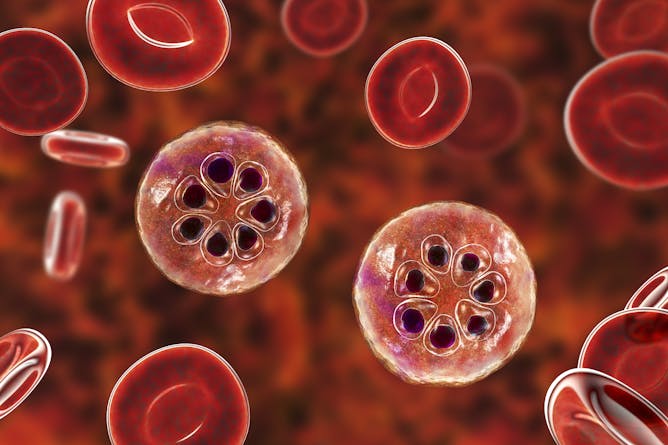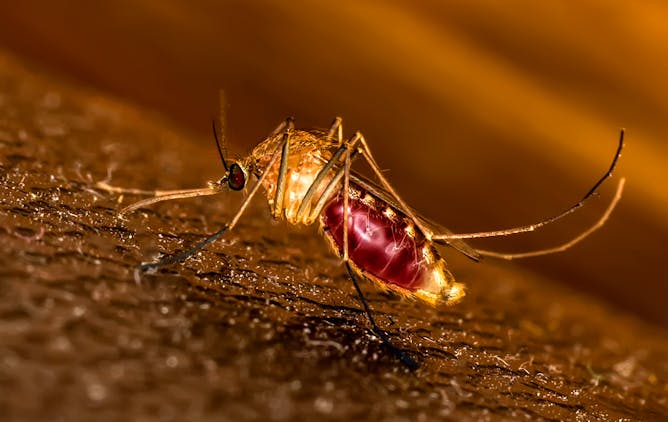|
Malaria is one of the biggest killers of children under five in the world, most of them in Africa. And so when, last year, we saw that results from a phase 3 clinical trial of a new malaria vaccine developed by the University of Oxford were imminent, we wanted to talk to the people behind it for The Conversation Weekly podcast.
Last week, those results were finally released (in pre-print), showing the vaccine had an efficacy of 75%. And days later, the World Health Organization recommended its use on children, making it the second vaccine to receive such approval since 2021 and raising the possibility of eradicating the disease within decades.
We spoke to Adrian Hill, chief investigator of the group behind the new malaria vaccine, who was also involved in developing the Oxford/Astrazeneca COVID-19 vaccination. He told The Conversation Weekly all about the decades-long search for a way to prevent malaria, and why the new vaccine could be a gamechanger because of how easy it is to mass produce. You can listen to the podcast here and read excerpts of the interview here.
|

Adrian Hill, University of Oxford
People have been trying to make malaria vaccines for over 100 years. With the help of the revolutionary new R21/Matrix vaccine the disease could be eradicated by 2040.
|

Daniel Merino, The Conversation; Nehal El-Hadi, The Conversation
In this episode of The Conversation Weekly, we hear from the scientists behind a new malaria vaccine developed by the University of Oxford.
|
|
|
-
Charles R. Hunt, Boise State University
Long gridlocked by fighting between the two major political parties, the US House is now split by conflict within the GOP, thanks in part to redistricting practices that boost extremism.
-
Aaron W. Harrison, Austin College
Three scientists won the 2023 Nobel Prize in physics for their work developing methods to shoot laser pulses that only last an attosecond, or a mind-bogglingly tiny fraction of a second.
-
Niranjan Shivaram, Purdue University
The 2023 Nobel Prize in physics recognized researchers studying electron movement in real time − this work could revolutionize electronics, laser imaging and more.
-
Michael E Odijie, UCL
Ghana and other west African cocoa growing countries must harness their combined bargaining strength to address the challenges plaguing cocoa farming.
-
Zoie Magri, Tufts University
Your cells die to keep you alive. Cell death does everything from fighting cancer cells and pathogens to forming your fingers and toes.
-
Jianqing Chen, Arts & Sciences at Washington University in St. Louis
The design philosophy of the everything app WeChat may seem paradoxical, being simultaneously pervasive and inconspicuous. But this idea of “everythingness” goes back to ancient Taoist philosophy.
|
|

Glenda Mary Davison, Cape Peninsula University of Technology; Yvonne Prince, Cape Peninsula University of Technology
Oral hygiene is often neglected but research has shown that abnormal bacterial communities in the mouth can cause serious disease.
|